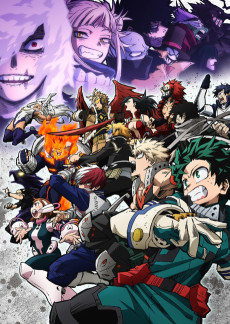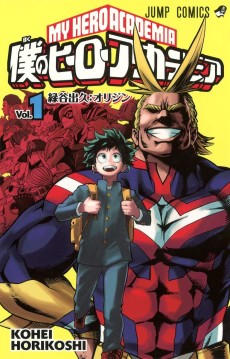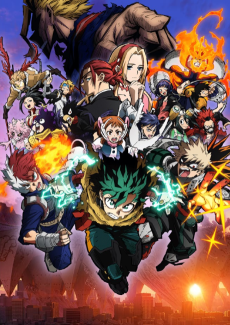BOKU NO HERO ACADEMIA 7
STATUS
COMPLETE
EPISODES
21
RELEASE
October 12, 2024
LENGTH
24 min
DESCRIPTION
The seventh season of Boku no Hero Academia.
Following an all-out battle with the Paranormal Liberation Front, it is difficult for the people of Japan to continue placing faith in their heroes. To combat the combined power of Tomura Shigaraki and All For One, All Might calls for his ally from the West—the strongest woman on the planet, Star and Stripe.
However, All For One decides to intercept Star and her fleet to get his hands on her overpowered quirk before she can enter Japanese airspace. Although Endeavor, Hawks, and Best Jeanist are headed to the rendezvous point, Star makes a gamble in the present to save her comrades.
(Source: MAL Rewrite)
Note: The season was preceded by a 4-episode special titled 'Boku no Hero Academia: Memories' recapping events from the 6th season along with adding a few minutes of new material each episode.
CAST
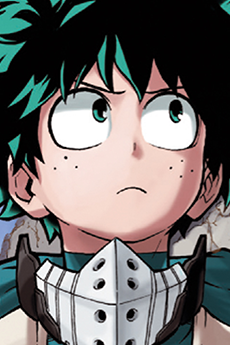
Izuku Midoriya
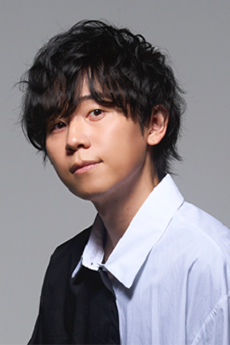
Daiki Yamashita

Tomura Shigaraki
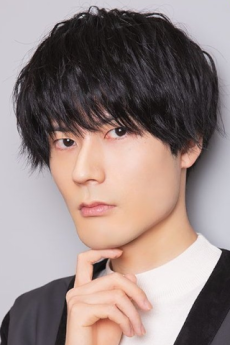
Kouki Uchiyama

Shouto Todoroki
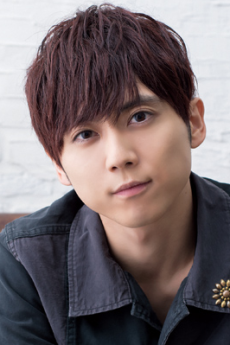
Yuuki Kaji

Katsuki Bakugou
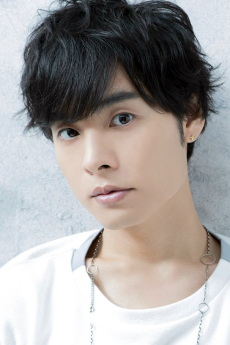
Nobuhiko Okamoto
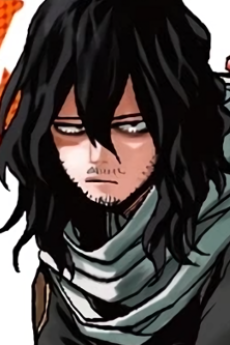
Shouta Aizawa
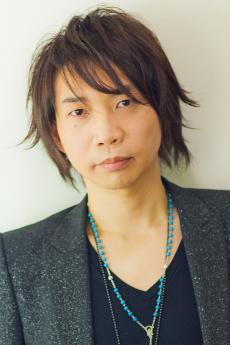
Junichi Suwabe

Eijirou Kirishima
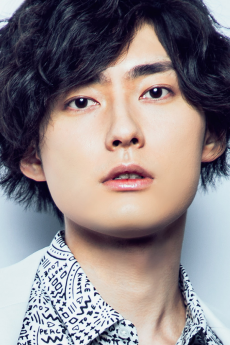
Toshiki Masuda
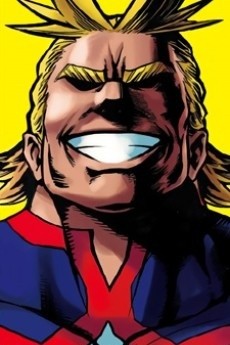
Toshinori Yagi
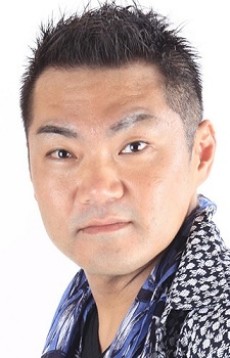
Kenta Miyake

Himiko Toga
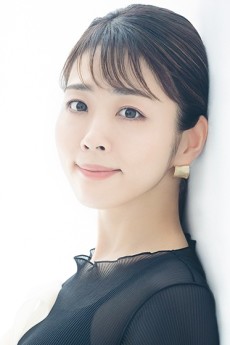
Misato Fukuen

Dabi
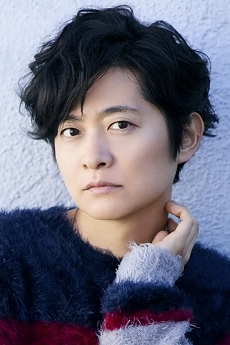
Hiro Shimono

Ochako Uraraka
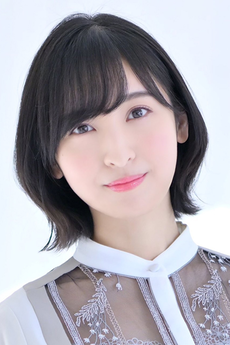
Ayane Sakura

Denki Kaminari
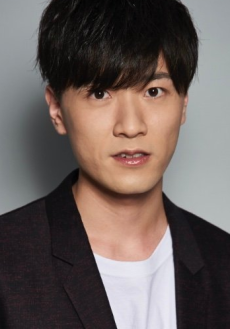
Tasuku Hatanaka
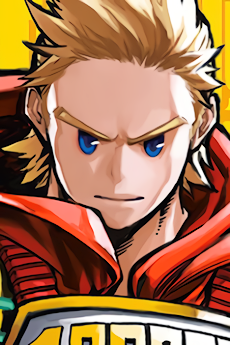
Mirio Togata
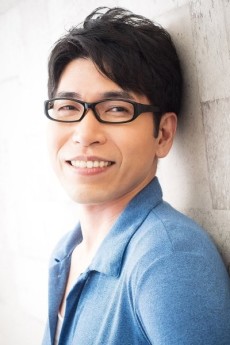
Tarusuke Shingaki
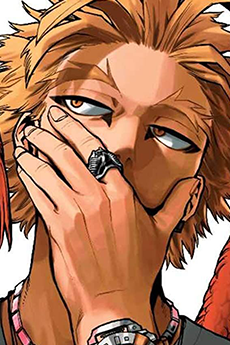
Keigo Takami
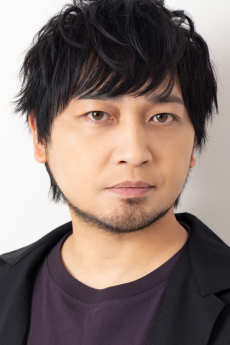
Yuuichi Nakamura
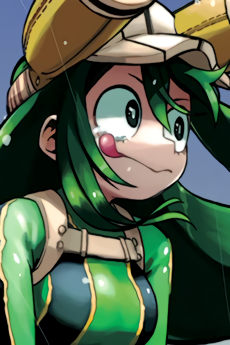
Tsuyu Asui
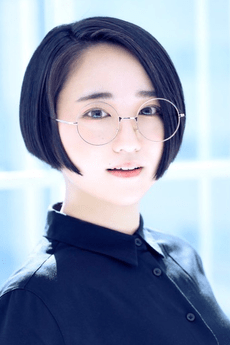
Aoi Yuuki

Kyouka Jirou
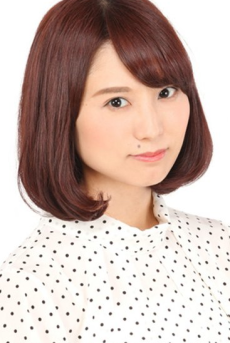
Kei Shindou

Tamaki Amajiki
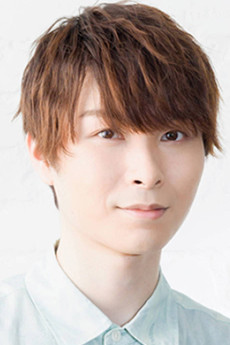
Yuuto Uemura
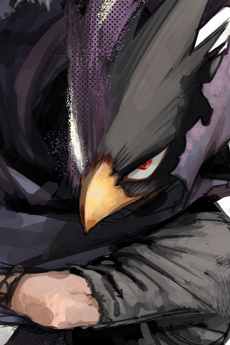
Fumikage Tokoyami
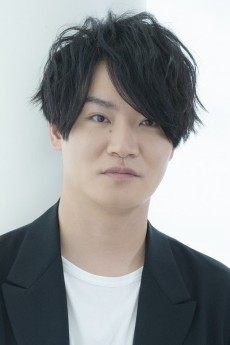
Yoshimasa Hosoya

Momo Yaoyorozu
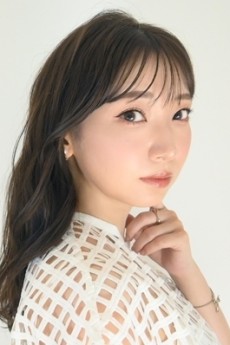
Marina Inoue

Hitoshi Shinsou
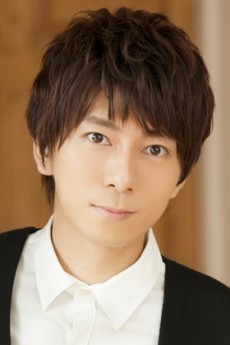
Wataru Hatano

Rumi Usagiyama
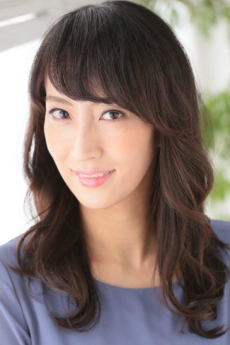
Sayaka Kinoshita

Mina Ashido
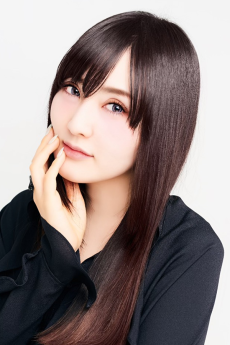
Eri Kitamura
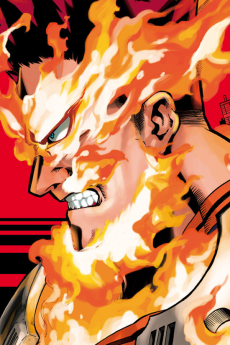
Enji Todoroki
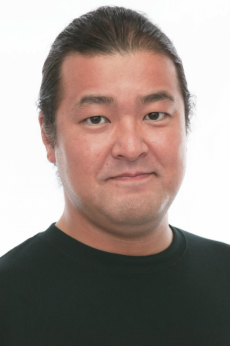
Tetsu Inada

Tenya Iida
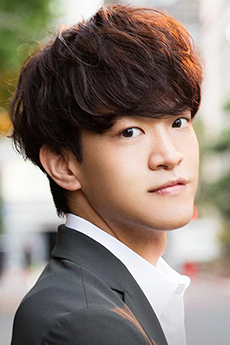
Kaito Ishikawa
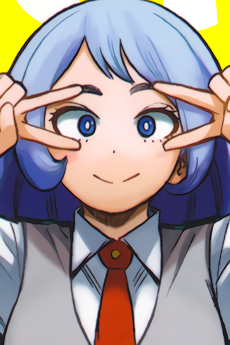
Nejire Hadou
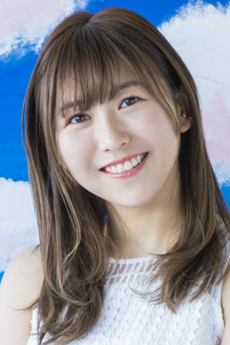
Kiyono Yasuno
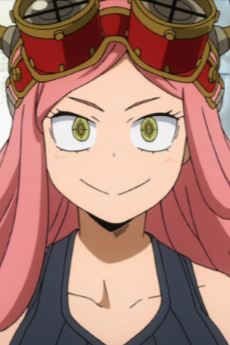
Mei Hatsume
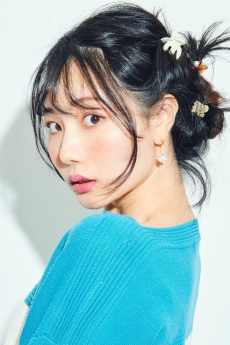
Shiori Sakurai
EPISODES
Dubbed
RELATED TO BOKU NO HERO ACADEMIA 7
REVIEWS

Kaito67
70/100MHA shifts into high gear as we approach the finaleContinue on AniList*Spoilers coming up for anyone who hasn’t watched this season or MHA in general. If you haven’t watched MHA, what are you doing looking at a review for season 7?* *There will be no spoilers for anime-onlies though, don’t worry.* _____ *Series Composition: Yousuke Kuroda* *Chief Director: Kenji Nagasaki* *Director: Naomi Nakayama* *Assistant Director: Hyuuga Yamamura* *Length: 21 episodes* ___ My Hero Academia is back once again. It’s a yearly tradition. However, the MHA anime is in high gear (pun intended) due to the fact that we have almost reached the ending and are in the midst of the final all-out war arc that will wrap this story up. The anime has big shoes to fill, not only because expectations at this point are bound to rise with having edged us on with the possibilities of a final war encounter in the previous season, but also because the source material itself set high expectations with both amazing art and well-executed climaxes. This review will look at this season through the lens of someone who read the manga past episode 11, so I’m no stranger to having had my personal expectations for this season myself as I watched it week by week. So let’s go through it, shall we. #Consistency is the key ____ Now, when it comes to the production quality itself, MHA more or less is very consistent. We have a new director with Naomi Nakayama, who replaced Masahiro Mukai. Masahiro Mukai himself directed season 4 to 6, and replaced Kenji Nagasaki, who directed the seasons before and is now positioned as the chief director from season 4 onwards. So what does that mean for MHA? I… genuinely don’t know. No idea. And that’s because MHA is, as I stated, a very consistent show. Aesthetically it still looks the same, and also production-wise it’s very similar to previous seasons, particularly when it comes to being transformative with the source material or having to deal with severe time limitations. Though something must have changed, even if just a little. Because this season is the most overall well-produced season in a long time, despite still being 2 cours as usual and a movie being produced on the side, a limitation season 6 didn’t have to deal with. While Nakayama’s quirks as a director (if there are any) are subtle in showing themselves, what we can say is that she did one hell of a job carrying this production from start to finish and ensuring an overall good product. Now there are some disappointments and the production still was limited, as we could see for instance in an [awkwardly put together gear shift episode](https://anilist.co/forum/thread/76169) which is supposed to be a big highlight for the series, or [later episodes in the show like the fight against AFO in Gunga](https://anilist.co/forum/thread/76757) which relied more and more on still drawings. But the season still managed to do at least a serviceable job even in its lowest points, while still providing a lot of highlights and remarkable scenes. That is impressive, considering that the material consists of non-stop action and difficult-to-adapt material. One of the contributing factors is for instance the clever and frankly well-done usage of CGI for Shigaraki’s hands, Toga’s “Sad Man’s Legion”, All Might’s Suit, and Inasa’s tornados. CGI has been used in MHA ever since season 5 and working on that aspect of the production ever since has paid off big time. *KA: Atsushi Hasebe (Presumed)* What also helps MHA’s production is that its team consists of experienced regulars who are very well aware of the limitations and the framework they operate in. Regulars like Tomo Ookubo, Tsuyoshi Tobita or Shouji Ikeno not only handle the bulk of director/storyboard duties, but also are very good at staying faithful to the manga and saving time by using techniques such as stills effectively. When it comes to the animation side, the team has strong supervisors such as Yoshihiko Umakoshi, Hitomi Odashima or Takashi Murai and a good assemblement of key animators such as Jason Yao, Takahiro Komori, Shun Shibata and more. Having so many regulars on a show like this who also have the specific experience of working on this type of show for multiple years, is simply a strong backbone for a production. In the end it’s difficult to say why this season turned out so well the way it did (considering all the limitations), it might just be that the team truly has maximized their potential as a well oiled machine churning out a 25 episodes anime every year or so, it might be that a new director brought in a bit of fresh air in a way which Masahiro Mukai wasn’t able to do when he entered for season 4. Or maybe a bit of both. *Side note: It’s note-worthy as well that some of the backbone of this production is young talent like Jason Yao who have been growing alongside this series!* #Finish off with a bang _____
The most surprising thing about this season has to be however how they managed to deliver hardcore on nailing down the last three episodes of the season, which coincidentally also happen to be huge narrative highlights. Particularly the climax to the Todoroki family was absolutely incredible, [boasting both great direction and emotional potency and raw animation power](https://anilist.co/forum/thread/77075). The final talk between Ochako and Uraraka was great as well, [breaking out the mold of adapting manga panels 1:1 with a great guest storyboarder](https://anilist.co/forum/thread/77241/comment/2740197) Of course the other main highlight here is the appearance of Armored All Might or Iron Might to stop the advancement of AFO. As someone who loves Iron Man, seeing All Might fight again in all his glory like this [is just pure joy to witness](https://anilist.co/forum/thread/77409/comment/2744873). Arranging the production in a way that the final episodes still receive the time they need (knowing that these are narrative peaks that need to be prioritized) shows great foresight and management of the team and definitely helps to swallow weaker parts of this season. #Finally, let’s talk about the story _____
This review has been focused on the production side of things as that is something I feel is a niche I can occupy well within the space of anime reviews on anilist, but obviously, there are things to discuss narratively as well. All-out war story arcs are common for battle-shounen, precisely because battle-shounen tend to follow the formula of the main character and his foes becoming stronger and stronger, ultimately requiring a grand action-heavy finale to satisfy readers and their growing expectations. However, all-out war arcs for my taste aren’t that good, at least most of the time. And that’s because they need to function as some kind of closure not only for the main narrative but also for all other subplots that may have been opened along the way. That’s difficult because the structure of Shonen Jump and its weekly ranking nature doesn’t encourage making decisions for a story long-term, but rather it encourages short-term decisions which help the series maybe for the ranking next week. As such shonen authors can have the struggle of maintaining a clear vision of where their series is headed and how they want it to end, and when the time has come to bring everything together in one circle, it can be a struggle to connect all the loose ends. My Hero Academia however, I would say, manages its war arc relatively well so far. Naturally I very much enjoy how previous subplots such as the Todoroki family have been resolved, and how there is pay-off for many character moments which have been set up before (such as Best Jeanist finally recognizing Bakugou as a hero with his hero name). Consistency has been the strong suit of the show in terms of writing as well, and as someone who rewatched the entire series before season 7, it’s rewarding to see how the series keeps reminding you through flashbacks that the development currently happening has been alluded to for a long time. And thankfully, that trademark remained strong for this climactic story event as well. *KA: Momoka Miyagawa (first cut), otherwise unknown* Now, structurally MHA does seem to put up more of a struggle to come together as well as it used to, probably because of the reasons I outlined before why all-out war arcs generally can be difficult. For instance, the climax to the Todoroki storyline was amazing, but in order for it to happen Toya needed a fake-out following his fight against Shoto, which felt a bit like a convenience when the series at first makes it look like he was finished right there. Now his tenacity throughout the entire arc feeds into the emotional highlight at the end as well, but moments like these feel a bit forced, and not as structurally sound. MHA still seems to roughly know where it wants to go in terms of narrative and what the big important events need to be, but the connecting dots between these building blocks can sometimes test your suspense of disbelief. I will say that the anime makes that more obvious than the manga with its slower pacing though. I’m also not too fond of the fake-out death of Bakugou, even if I very much understand what Horikoshi tried to do. In general this season exposed for better or worse that MHA’s narrative is hesitant to experiment much. Staying close to its foundation has its own strengths, but it also can feel like that the story inherently limits itself by doing so. The example of Bakugou’s fake-out shows how very hesitant MHA is to kill notable characters off, because it wants to maintain its optimistic nature and how heroes succeed despite the odds. Deku’s characterization and how the show is roughly headed is also predictable because MHA is very upfront about its themes and ideas and how it intends to portray them. Now that sounds probably rather negative, but I will say I still find that MHA manages well to make up for a lack of experimentation with strong execution. The strong emotional moments still hit you like a truck when they need to, and MHA can come up with cool surprises even when the larger rough narrative is decided, such as Monoma copying Warp and Erasure or the Coffin in the Sky. You can tell that Horikoshi loves superheroes and loves experimenting with various superpowers and how to combine them. It also results in clever and seamless ways to integrate cameos for characters who are not important enough to warrant more screentime.
 #Where do we go from here?
____
Overall, I am very satisfied by this season of MHA. Both narratively and production-wise MHA manages to carry on a lot of the high points from previous seasons which we know and love, and also the lower points which still are fine for what they are. Now, the cliffhanger we ended off on is nasty, no discussion there, but there aren’t many better instances to stop. The final season at least will have better production circumstances with only 12/13 episodes and no movie announced, so we maybe can expect an even better overall result than this season which would be great as a finisher to this series. In any case, there is a lot to look forward to for both anime-onlies and manga readers. The continuation of All Might vs AFO, the ongoing battle between Deku and Shigaraki, the possible involvement of characters like Stain? We’ll see each other next year, I suppose!
*Thank you for reading this review and if you have any feedback, feel free to leave a message on my profile or below my completed activity :)*
#Where do we go from here?
____
Overall, I am very satisfied by this season of MHA. Both narratively and production-wise MHA manages to carry on a lot of the high points from previous seasons which we know and love, and also the lower points which still are fine for what they are. Now, the cliffhanger we ended off on is nasty, no discussion there, but there aren’t many better instances to stop. The final season at least will have better production circumstances with only 12/13 episodes and no movie announced, so we maybe can expect an even better overall result than this season which would be great as a finisher to this series. In any case, there is a lot to look forward to for both anime-onlies and manga readers. The continuation of All Might vs AFO, the ongoing battle between Deku and Shigaraki, the possible involvement of characters like Stain? We’ll see each other next year, I suppose!
*Thank you for reading this review and if you have any feedback, feel free to leave a message on my profile or below my completed activity :)*
TheAnimeBingeWatcher
90/100The penultimate season burns bright with some of the most satisfying long-term payoffs in shonen history.Continue on AniListIt's so hard for me to wrap my head around the fact that My Hero Academia is ending.
For context, MHA is maybe the third anime I ever watched. Not counting Spirited Away and a few seasons of Pokemon, I was first introduced to anime through Attack on Titan, then decided to explore the medium more fully after falling in love with Fullmetal Alchemist Brotherhood. And the next show I decided to check out after that was, of course, this silly little superhero show that only had two seasons out at the time. So it's safe to say that My Hero Academia was one of my formative experiences as an anime fan, one of those shows that defined for me what this medium was capable of and why it was worth devoting so much of my life to. I fell in love with its charming characters, its pulse-pounding action, its deeply earnest portrayal of heroism that wasn't ashamed to be corny and heartfelt. And in the seven years since, I've continued to find new reasons to love it, even as my taste has evolved and my understanding of anime has deepened. As much as I've changed, one thing remains indisputably true: My Hero Academia is a show I'm always excited to return to.
But seven years is a long time, and the anime industry of today feels worlds away from when this show started. Smash hits like Demon Slayer and Jujutsu Kaisen have rewritten how shonen anime gets made and how fans engage with it. There's more anime being made than ever, but it's all spread so thin almost none of it gets the resources it needs to be the best version of itself. And somewhere along the line, it feels like My Hero Academia slipped through the cracks. What use does this earnest, sentimental show have in today's more jaded landscape? What use does the world of today have for heroes anymore? In a way, it's like our world has started to mirror the world of the show itself: paranoid, cynical, distrustful of the very concept of heroes that once drew us to it as surely as Deku and his classmates were drawn to All Might's seemingly eternal silhouette. And now we're staring down the end of the anime that once stood at the forefront of mainstream appeal, left to wonder what remains when the dust finally settles.
And what remains, it turns out, is one of the best goddamn anime I've ever had the pleasure of watching.
There's just no getting around it: My Hero Academia fucking rules. From start to finish, from 2016 to now, it's remained one of the most consistently entertaining, emotional, and thoughtful series to ever spring from Shonen Jump's pages. A story that effortlessly merges heartfelt sentimentality with complex moral quandaries, that deconstructs its own premise to reach the beating heart of heroism itself, that isn't afraid to call for massive, society-reshaping change if that's what's necessary to right the wrongs of our current system. And it delivers those themes through deeply rewarding personal journeys for almost all of its characters, no matter how small, and a series of no-holds-barred superhero showdowns that will have you punching the air one second and screaming in panic the next. My Hero Academia is excellent. It's always been excellent. And as it barrels headfirst into its final stretch, it's never been more obvious just how spectacularly it's going to stick the landing.
It's tricky to talk about Season 7 in isolation because unlike most seasons of MHA, it doesn't stop comfortably at the end of an arc. This is, after all, the final battle, the final showdown against One For All, the League of Villains, all their myriad supporters, and the failures of hero society itself made manifest in the lost souls they've let slip through the cracks. And with how massive the cast has grown, it's inevitably going to be a massive, sprawling affair with far too many moving pieces to comfortably wrap up in the space of a single season. So after a brief stretch of build-up to set the stakes, this season is all about climax, countless skirmishes between countless characters as UA enacts its final plan to take down OFA and rebuild their world into something better. It's all gas no brakes as plot threads from all throughout this series come crashing and tangling together, finding closure for every step of the journey we've taken to get here in the most suitably explosive and cathartic ways imaginable. And even then it only has enough time to get us to the start of the final final battle before saying "see you later" for one last season next year. But we've waited this long for the grand finale, we can wait a little more. I'll take an appetizer this fantastic en route to the main course any day.
So in essence, this season is all about taking MHA's sprawling narrative and whittling it down to its core one step at a time. And I think it's worth taking a second to acknowledge what an insane challenge Horikoshi set for himself here. With the final confrontation between Deku, Shigaraki and All For One looming, it falls to this season to make room for them by finding closure for literally every other character's story arc. Not just big supporting players like Bakugo and Uraraka, but minor characters we haven't seen in years, one-off background players we didn't even expect to see again, heroes, villains, bystanders, civilian collaborators... at times it feels like every single named character, no matter how small, is given a part to play here. And not only does this season have to resolve all those storylines in time for Deku to take center stage, it has to make those resolutions mean something. Every conclusion is a single thread in the grand tapestry that is My Hero Academia's thesis on what it means to be a hero, all intertwining and building on each other's meaning. It can't just be checking items off a checklist; the way these countless little stories resolve is crucial. And Horikoshi has to accomplish all of that without it dragging, or losing focus, or running out of steam, or rushing to get to the main event, or letting even a single one of these moving parts fall through the cracks.Say what you will, the man clearly loves a challenge.
I'd love to say he pulls it off flawlessly and this semi-final stretch is nothing but home run after home run. Sadly, I can't. As much as I loved this season, MHA's final battle has more than a handful of issues running through it, issues that would've easily tanked a weaker show if the good stuff weren't still so spectacular.
The most obvious issue is an over-reliance on flashbacks. In order to keep a lot of the final battle's biggest surprises secret, the show skips over most of the planning the heroes and villains do in the build-up so all the big twists and reversals can come out of nowhere, only to double-back and explain how those twists came about retroactively once they've landed. Which, you know, I get the instinct, I wouldn't want to sit through five episodes watching everyone make plans either. But this happens so many times, and the explanatory flashbacks are usually so long, that it starts to feel like trudging through waste-deep mud just to get through all these fights in a timely manner. Which only gets worse when the fight starts flashing back to itself, bouncing back in time to cover several different battlefields in succession. We'll finish up a massive fight between say, Endeavor and All For One, only to flash back twenty minutes earlier to see what Kirishima and Mina were getting up to at the same time the big guns were trading blows. It's flashback on top of flashback on top of flashback at a time when the story needs forward momentum more than ever, and all I can say is thank god all the stuff it's flashing back to is still compelling in its own right, or this would've gone from an annoyance to absolutely insufferable.
But the bigger issue for me comes from the main villain himself. I'm going to be blunt: All For One is boring. He's the most generic big bad imaginable, no interesting goals beyond world domination/destruction and no interesting powers beyond Be Stronger Than Everyone thanks to his infinite quirk stockpile. In a series that's always excelled at writing its bad guys and imbuing them with compelling humanity, the biggest bad of them all comes off as little more than an overpowered punching bag who always has some bullshit trump card to win every fight he's in. Which worked fine when he was still in the shadows, showing up for brief moments of horrific destruction and otherwise letting the much more compelling Shigaraki and Friends take the spotlight. But now that he's actually out in the spotlight, endlessly monologuing about being eeeeeeevil and negating everyone's attempts to stop him with all the grace of literally being handed an Everything-Proof Shield by Horikoshi himself, all that horror has rapidly leeched away. Turns out, the only thing that made him compelling was how well he he managed to hide what a lame loser he was. And now that he's over-exposed, I can't take him seriously again, no matter how many Deux ex Machinas he pulls out of his ass (Honestly, a lot of the villains feel like they're saved by the hand of the author this arc, but it's most obvious with AFO).
So there's a lot to criticize about Season 7. It's a huge, messy, ambitious climax that's trying to do everything at once, and it's no surprise it buckles under the weight of all that ambition. If I was feeling ungenerous, I could see myself calling this a pretty lackluster season of MHA overall, weighed down by all those problems that keep it from reaching its full potential.
Except.
It turns out, Horikoshi is really fucking good at endings.
It's always an open question how much a mangaka plans for their story's finale. Especially in Shonen Jump, where series are pushed to run for as long as they're profitable, even the best-laid plans for an ending can be led astray. Sure, not every story needs a full roadmap laid out from the start, but when you ask an audience to invest so much time into your work, making them feel like it was all worth something at the end can make all the difference in the world. And what's become clear in My Hero Academia's final stretch is that Horikoshi was prepared for everything. I don't know exactly how much he had planned, but whether he had lists of notes written out from chapter 1 or if his story sense is just that good in the heat of the moment, he somehow managed to pull off the impossible: he delivered on every front. He took that staggering tapestry of intertwining story threads and made each and every one of them sing. Every single character you've been following for all these years, whether you've cheered them on from day 1 or forgot they even existed, is sent home in triumph and leaves such an indelible mark on My Hero Academia's soul that I can no longer imagine the show without them.
Like, fucking hell, where do I even start? Endeavor somehow becomes one of my favorite characters as he completes one of the single greatest redemption arcs of all time! The forgotten kids of class 1-B showcase why they deserve to share the spotlight once and for all! An unexpected return from some of the most delightful villains fighting for justice! Jiro and Tokoyami drawing blood from the devil himself! Mina facing her trauma head-on and triumphing over it! Even Ojiro and Shoji, who've had basically nothing to do the entire series, somehow pull off a genuinely fantastic fantasy racism subplot in the space of a single episode! Lemillion! Aizawa! Aoyama! FUCKING KATSUKI BAKUGO! There wasn't a single episode that didn't leave me screaming with glee at least once. Seeing all these characters I've known for so long coming together and raising their voices in a single harmony was cathartic on a level I didn't even know was possible. These aren't just a bunch of kids anymore; they're heroes. They're heroes in the truest sense imaginable, raising a burning fist in a dark world and refusing to let the embers die, rekindling a fading flame until it can blaze back to life brighter than ever. And seeing their stories brought to a close with such overwhelming passion made every frustrating flashback or boring AFO monologue suddenly as unimportant as a speck of dust on the wall.
And then there's Uraraka.
Jesus Fucking Hell, there's Uraraka.
Ever since I first watched this show back in 2017, I've been in love with this girl. I've cheered for her, I've cried with her, I've put my faith in her oddly paw-like hands as she's grown from a sweet and bubbly girl to someone who understands the true value of that compassion. But after this season? After her final confrontation with Toga? There's just no denying it anymore: Ochako Uraraka is one of the single greatest shonen heroines of all time. Her relentless, unstoppable, defiant kindness in the face of the world's cruelty is the single most inspiring force in this entire damn show. And it's that unyielding love, that refusal to reject the humanity even of her worst foes, that saves the world in a more profound way than All Might or Deku ever could. In her heartbreaking showdown with Toga, we don't just see the salvation of one lost girl; we see the way forward for ALL of us, everyone blinded by hate or ignorance, everyone who turned a blind eye to the cracks in this seemingly perfect system. All Might might be the Symbol of Peace, and Deku might be the champion of hope, but Uraraka is the raw, bleeding heart that makes this world worth fighting for. And seeing her and Toga find each other, choose each other, save each other against all odds, left me sobbing harder than this show's ever made me cry before. To think the show that inflicted Mineta upon us could pull off a story of queer acceptance and love this unfathomably beautiful.
But that's been the magic of watching My Hero Academia for so long. For all its stumbles, it's a series that's always gotten back on its feet, a series that's never stopped trying to go beyond Plus Ultra. And if there's one thing season 7 proves beyond a shadow of a doubt, it's that this long, long journey was absolutely worth it. This story is coming to an end not with a whimper, not with a bang, but with a goddamn fireworks shower that fulfills every promise it ever made. Between this and Attack on Titan, I really picked the perfect starting points to my anime adventure, series that would grow and change with me but never lose the wonderful spark that made me fall in love with them in the first place. And just as my faith in Attack on Titan was proven right by its all-timer finale, My Hero Academia has rewarded my investment with a spectacular final arc that, despite its issues, will cement this series as one of anime's most enduring triumphs. All that's left to do now is wait for the final season to bring it all home. I've spent so much of my life with this show; now, at last, it's time to bid it farewell. And I can't wait to share that experience with you all as I say goodbye to my anime-fan starting line, one last time.

Wiredd
80/100O Início do fim em Boku no Hero Academia (PT-BR)Continue on AniListEis que depois de anos de espera, finalmente chegou a reta final de um dos maiores battles shonens da geração passada (senão o maior em quesito qualidade), obviamente buscava-se uma reta final com qualidade, tal como a obra apresentou apesar de alguns problemas no decorrer da narrativa.
Ao contrário do que a fandom brasileira do anime comenta, essa temporada não é ruim, tem falhas, assim como a obra tem em vários outros momentos, mas, longe de ser fraco, acredito que se esperava muito mais do que aconteceu, muito por isso, não só Boku no Hero, mas, os shonens em geral tem seus finais em maioria criticados.
__STAR AND STRIPE E O TRAIDOR DA UA__ A temporada começa com a introdução de Star and Stripe, a heroína norte-americana inspirada por All Might, o conceito de super-heróis de outros países expande a série de forma gigantesca, é a grande oportunidade de explorar esse mundo ao máximo. A Série inclusive dá indícios de que isso possa vir a acontecer quando no último episódio da 6ª temporada são apresentados personagens de outros países, mas, infelizmente esse conceito de ouro, é deixado de lado quando a personagem da Star, após uma batalha excelente, morre com menos de 4 episódios após a sua introdução, apesar do conceito interessantíssimo, em nada agrega a história. Não tem problema esse conceito ficar só na amostragem, mas, quando a série promete ou dá indícios de que vai desenvolver, deixar esse conceito por fora, é de fato uma decepção. Durante a história, sinto que a abordagem da Star and Stripe serviu apenas para mostrar o atual poder do Shigaraki na história e não para desenvolver a história como um todo.
O Segundo e último ato curto antes de começar a batalha final é a revelação do traidor da obra. A questão foi levantada ainda na segunda temporada e é MARAVILHOSO, o ato do Aoyama como traidor é uma ótima sacada, que é possível perceber presente desde o ínicio da história em várias nuances. Mas, infelizmente, acho que essa temática demorou muito a ser explorada a fundo e poderia ter rendido mais frutos na obra. A revelação é o que desencadeia o ato final da obra (de forma acelerada em minha opinião), por isso, é extremamente impactante à narrativa, mas, sinto que poderia ter sido melhor abordado durante a história. Apesar de ser um personagem extremamente lógico e coerente, sinto que o traidor poderia ter tido mais momentos relevantes para aumentar ainda mais o impacto de sua revelação. Fazendo um paralelo com outras obras, sinto-me como se no fim de Naruto, a identidade de Tobi fosse algum vilão aleatório da história como o Sasori por exemplo. Boku no Hero poderia ter trabalhado esse aspecto de forma ainda melhor, pro fã mais casual, a revelação pode até mesmo parecer sem impacto dado a falta de importância do personagem pra esse papel.
__A BATALHA FINAL __ O último ato a se analisar, é com certeza a batalha final da obra, que faz muito bem em alguns pontos. Acho interessante como a obra usa todos os personagens já inclusos na série, mesmo que seja um pouco, comparando com personagens de outras obras famosas, acho que por aqui, Boku no Hero brilha, em NarutoShippuden por exemplo, a guerra final dá muito foco aos personagens principais apenas e trás uma diversidade baixa de vilões (apesar de usar Naruto de exemplo, não se enganem, a série é uma das minhas favoritas). Já em Boku no Hero, o contrário ocorre, todos os personagens tem um tempo de tela, além da representação dos vilões novos que aparecem na história, que mesmo aparecendo pouco, dão seu brilho a esse último ato. Claro que eu aumentaria ainda mais esse tempo de tela de ambos os grupos, mas, acho que a série faz isso em boa medida. A falta de mortes, um problema já antigo na obra, por aqui volta a ser um problema, alguns personagens sem função alguma na série, são forçados sem nenhuma necessidade real já que seus papeis foram finalizados e em nada mais agregam continuando na história (como é o caso de Gentle, La Brava e Lady Nagant). As piadinhas em alguns momentos dessa reta final também são de matar o espectador, cortam completamente a imersão da série. Por falar em imersão, acho que a série afunda bem nesse quesito, o famoso "céu colorido" foi retirado e o clima é bem condizente com a atmosfera que a obra quer passar.
SPINNER E SHOJI: UMA DISCUSSÃO SOBRE RACISMO EM BATTLE SHONEN A batalha final do personagem Spinner trás um ato que pra mim é o melhor dessa temporada, e vale uma menção a parte. Como todos sabem, Boku no Hero é uma obra que toca em viés social em alguns momentos, e isso é um diferencial enorme para a obra como shonen de batalha. Após os acontecimentos das últimas temporadas, Spinner vira uma espécie de Magneto, combatendo a discriminação através da criação de grupos extremistas, o personagem escolhido para derrotar Spinner é simplismente Shoji, um dos personagens secundários da Classe-A, embora a ideia de um personagem secundário ter um papel forte e derrotar um vilão principal da série seja uma ideia arriscada e normalmente falha, por aqui, a série faz muito bem o uso desse artíficio, afinal, trás dois personagens que sofreram a mesma dor (racismo) e trás a perspectiva de combate dessa questão através de ideias diferentes. É lógico, afinal, porque trazer um personagem que não passou pela discriminação para discutí-la? Boku no Hero, tem a consciência de classe racial, e por isso, a obra opta em usar personagens sujeitos a esse tipo de problemática para discutir, de forma quase explícita, uma forma de combater essa problemática. O interessante de se notar nessa cena é como todos os personagens envolvidos nela são minorias sociais, seja desse universo ou do nosso. Como por exemplo, Lock Rock, o único personagem negro da série. Enfim, essa camada social que Boku no Hero aborda na série é sem dúvidas uma das maiores potências da obra desde seu lançamento, obras assim são cada vez mais necessárias.
__DABI, TOGA, E SUAS CONCLUSÕES__ Além da batalha de Shoji e Spinner e a batalha principal entre Midoriya e Shigaraki/AFO, as batalhas que mais se destacam são as conclusões de Dabi e Toga.
Não tenho muito o que falar sobre essa primeira. O ato da Família Todoroki é um dos maiores dessa série sem dúvidas. Claramente, o ato se fecha de forma dourada, como foi toda a história anterior. Mas, acho que esse ato dispensa comentários, já é um ato conhecido, a única coisa que me incomoda é a conclusão do mangá (que será explorado na próxima temporada) o que claramente me chama atenção é o conflito da Toga, que além de trazer uma grande e positiva participação do elenco feminino, trás uma grande construção da personagem e seu psicológico, o penúltimo episódio da série, é de se debruçar em lágrimas com o desenvolvimento que a personagem tem em seu ato final. Pra mim, esse é o grande destaque dessa temporada.__CONCLUSÃO__ Uma temporada com várias qualidades, e vários defeitos também, mas, acima de tudo, uma temporada que em seu último episódio constroi um cenário que arca com um hate enorme para a recepção do público para o final da série. O cliffhanger do Mecha All Might, só reforça futuros comentários negativos sobre o final do anime, já que a obra leva a induzir desde o príncipio a morte do personagem (um grande recurso de roteiro), o anime termina só aumentando a possibilidade desse cenário, mas, é um cenário que não acontece. Assim, o anime termina cavando ainda mais sua própria cova para o público futuramente. Além da história como um todo, é legal perceber como a nova diretora trabalha bem com o roteiro, conseguindo trazer de volta a atmosfera de perigo que a série perde com a ausência de mortes ao longo da narrativa (mesmo que nenhuma morte de fato aconteça, é gratificante ver o trabalho da diretora em retomar essa atmosfera). A animação também melhora de forma considerável, não tem tantos problemas visíveis como em temporadas anteriores. De resto, o anime permanece o mesmo em qualidade de produção. De fato foi uma reta final que começou me deixando surpreso, mais do que lendo o mangá (a experiência tende a ser o contrário e costumo a preferir o mangá). Uma reta final com muitas qualidades, mas, também com pontos que acho que deveriam ter sido mais bem trabalhados durante a história. No mais, estou satisfeito com o que assisti.
SIMILAR ANIMES YOU MAY LIKE
 ANIME ActionJujutsu Kaisen
ANIME ActionJujutsu Kaisen ANIME ActionBlack Clover
ANIME ActionBlack Clover ANIME ActionAnsatsu Kyoushitsu
ANIME ActionAnsatsu Kyoushitsu ANIME ActionNARUTO: Shippuuden
ANIME ActionNARUTO: Shippuuden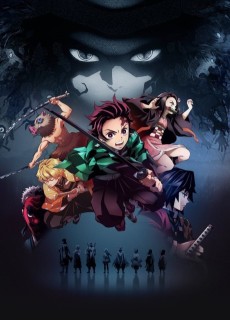 ANIME ActionKimetsu no Yaiba
ANIME ActionKimetsu no Yaiba
SCORE
- (4.05/5)
TRAILER
MORE INFO
Ended inOctober 12, 2024
Main Studio bones
Trending Level 6
Favorited by 2,940 Users
Hashtag #HEROACA_A #ヒロアカ

